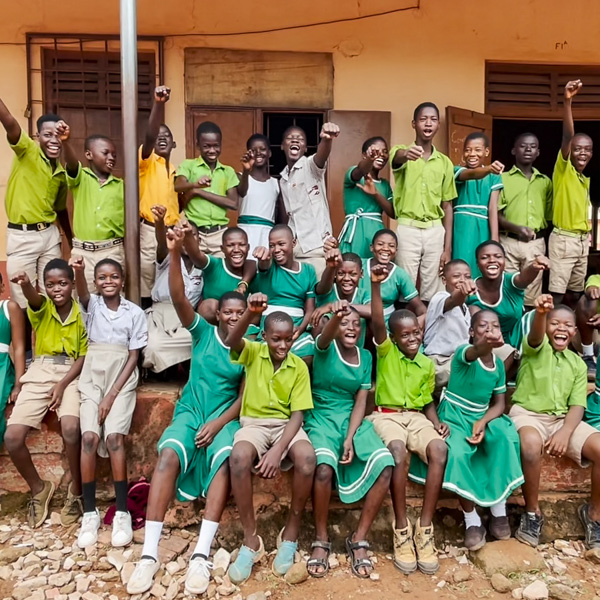TIP24 Report on Human Trafficking in Ghana: Key Facts, Trafficking to Gulf Countries and the Role of Education and Awareness
The 2024 Trafficking in Persons Report (TIP24) released yesterday provides a comprehensive overview of human trafficking in Ghana. TIP24 reports that despite significant efforts, Ghana remains in Tier 2, indicating that the country does not fully meet the minimum standards for the elimination of trafficking. This summary highlights the key facts from the report, focusing on trafficking to Gulf countries, the continuing effects of the June 2017 ban on migration to Gulf region and the role of education and awareness in combating this issue.

Key Facts from TIP24
Increased Efforts but Continued Challenges:
- Ghana has made progress in increasing trafficking investigations, prosecutions, and convictions.
- More trafficking victims have been identified and referred to services.
- The government has provided trauma-informed training for judicial and law enforcement officials and increased coordination with civil society on protection and prevention efforts.
Government Shortcomings:
- Despite these efforts, the government did not meet several key standards.
- There was no accountability for fraudulent labour recruiters exploiting Ghanaian victims abroad.
- The government did not address complicity in trafficking crimes effectively and did not amend the anti-trafficking act regulations to remove the option of a fine in lieu of imprisonment for traffickers who are parents or guardians of child victims.
- Screening for trafficking indicators among vulnerable populations, such as labour migrants and asylum seekers, remains inadequate.
Trafficking to Gulf Countries
- TIP24 highlights a persistent issue with trafficking to Gulf states despite a 2017 ban on labour migration to these countries. The report says this ban has driven migration underground, increasing vulnerability to trafficking.
- Fraudulent labour recruiters continue to exploit Ghanaian citizens with false promises of lucrative jobs in the Gulf, leading to forced labour or sexual exploitation upon arrival.
- In 2023, no fraudulent recruiters were investigated or prosecuted despite numerous reports of exploitation.
Key Recommendations from TIP24 for Ghana
Investigate and Prosecute Traffickers:
- Increase efforts to investigate and prosecute traffickers, including complicit officials and fraudulent labour recruiters.
- Seek adequate penalties for convicted traffickers, which should involve significant prison terms.
End Labor Migration Ban:
- End the ban on labour migration to Gulf states to prevent underground migration and exploitation.
- Implement the 2020 National Labor Migration Policy to ensure safe and legal migration.
Remove Option of Fines for Guardians:
Amend the 2015 regulations of the 2005 Human Trafficking Act to remove the option of a fine instead of imprisonment for traffickers who are parents or guardians.
Improve Victim Screening and Protection:
- Fully implement and train officials on Standard Operating Procedures (SOPs) to screen for trafficking indicators among vulnerable populations.
- Increase coordination between law enforcement, prosecutors, and social workers on trafficking victim identification and protection.
Enhance Victim Services:
- Increase the quantity and quality of care available to trafficking victims, including financial and in-kind support to civil society providing shelter and victim services.
- Improve victim-witness assistance programs to enhance protective services for victims participating in the criminal justice process.
Institutionalize Training:
- Provide continuous training for law enforcement, judicial officials, and Department of Social Welfare (DSW) personnel on the 2005 human trafficking law and trauma-informed, specialized investigative techniques.
Address Corruption:
- Actively address corruption and official complicity in trafficking crimes to ensure effective law enforcement action.
Monitor High-Risk Industries:
- Allocate resources and develop capacity to proactively screen and investigate trafficking cases, particularly in high-risk industries such as fishing vessels owned by foreign nationals operating in Ghana’s exclusive economic zone.
Key Successes Highlighted in TIP24 for Ghana
Increased Trafficking Investigations, Prosecutions, and Convictions:
- Authorities initiated investigations of 109 trafficking cases and continued six investigations.
- Prosecutions were initiated against 47 alleged traffickers.
- Courts convicted 19 traffickers under the 2005 anti-trafficking law.
Improved Victim Identification and Services:
- Identified and referred 944 trafficking victims to services, a significant increase from the previous year.
- Provided increased financial support for victim services and shelter operations through the Human Trafficking Fund (HTF).
Trauma-Informed Training:
- Provided trauma-informed training for judicial and law enforcement officials.
- Developed child-friendly versions of SOPs for identifying and protecting young trafficking victims.
Enhanced Interagency Coordination:
- Increased collaboration between government agencies and civil society on protection and prevention efforts.
- The Human Trafficking Management Board met quarterly to administer the HTF and promote anti-trafficking policies.
Public Awareness Campaigns:
- Conducted extensive public awareness campaigns and trainings in collaboration with NGOs and international organizations.
- Hosted the annual ECOWAS Trafficking in Persons Forum to improve regional collaboration.
Legal and Policy Framework Improvements:
- Implemented SOPs for identifying trafficking victims and developed case management SOPs for vulnerable children.
- Allocated resources to the 2022-2026 National Action Plan (NAP) and accompanying communications strategy.
TIP24 Spotlight on Trafficking to Gulf Countries
The report underscores the troubling trend of Ghanaian citizens being trafficked to Gulf countries. The 2017 ban on labour migration intended to protect Ghanaian workers has had unintended negative consequences. The ban has pushed migration underground, making it more difficult for authorities to monitor and protect individuals seeking work abroad.
The Recruitment Process
- False Promises: Fraudulent recruiters lure Ghanaians with promises of high wages and better living conditions. They charge exorbitant fees, which plunge victims into debt.
- Exploitation: Upon arrival in the Gulf, victims find themselves in harsh working conditions, with their passports confiscated and forced to work long hours with little or no pay – see our sister campaign Send Them Home for more information on the trafficking of women to the UAE for sexual exploitation..
Vulnerability Factors
- Economic Hardship: High unemployment rates and poverty make many Ghanaians vulnerable to trafficking.
- Inadequate Law Enforcement: The lack of stringent enforcement of anti-trafficking laws and inadequate screening of labour migrants contribute to the problem.
- Marginalized Groups: Women, children, and members of the LGBTQI+ community are particularly susceptible due to systemic discrimination and limited access to resources.
In Conclusion: Addressing Challenges and Charting Future Directions

Charting Future Directions Moving forward, Ghana must focus on a comprehensive strategy to combat human trafficking effectively. This includes increasing efforts to investigate and prosecute traffickers, especially those complicit officials and fraudulent labour recruiters. Improving victim screening and protection through fully implemented and well-trained Standard Operating Procedures (SOPs) is crucial. Enhancing victim services and support, addressing corruption, and ensuring stringent law enforcement actions are also vital steps. Additionally, allocating resources to investigate high-risk industries and implementing necessary legal and policy reforms, such as the National Labor Migration Policy 2020-2024, will create safer migration pathways. Strengthening coordination between law enforcement, prosecutors, and social workers, along with continued collaboration with NGOs and international organizations, will enhance the overall effectiveness of anti-trafficking measures. Public awareness campaigns and education initiatives remain key to empowering communities and reducing vulnerabilities to trafficking. Through these concerted efforts, Ghana can make significant strides towards eradicating human trafficking and protecting its most vulnerable citizens.



